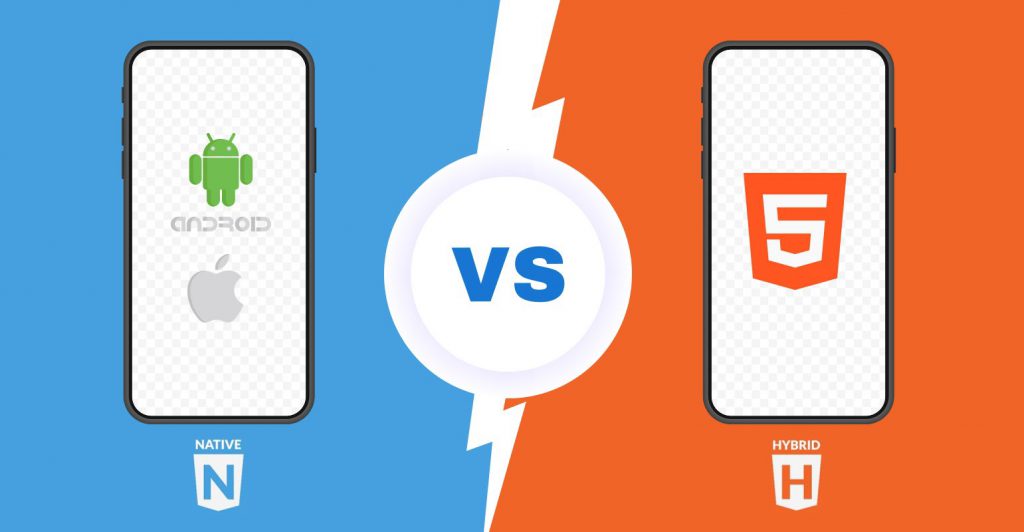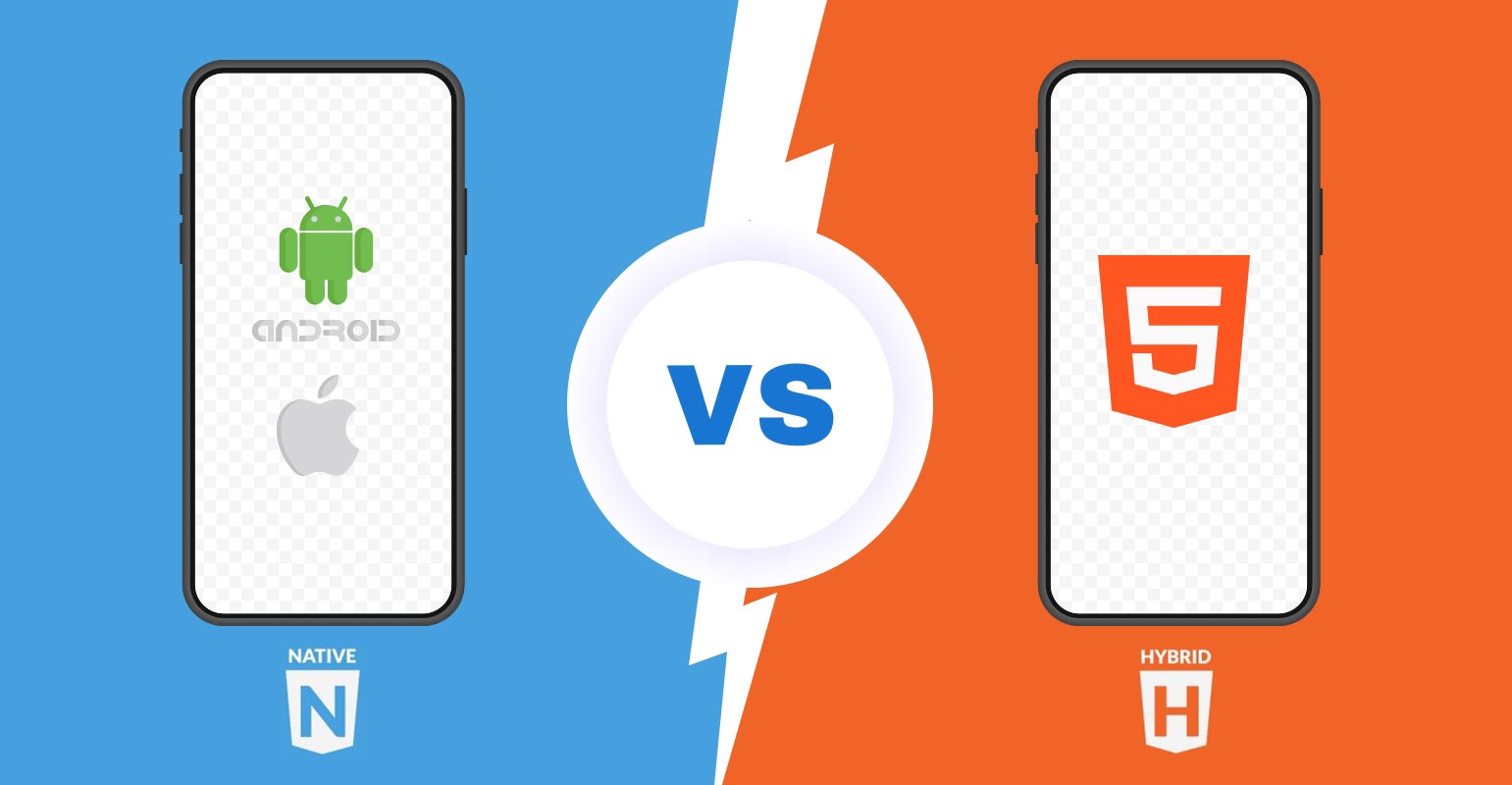
The Internet is flooded with debates about which approach to adopt when it comes to mobile app development. There are two types of mobile application development one can investigate for versatile mobile app development ventures: native and hybrid. Let’s try to know each type to make our decision about the best method for app development.
Native App
Native mobile apps are the most common type of app. It is a software application built in a specific programming language, for the specific device platform, either iOS or Android. iOS apps are developed using Swift or Objective-C and Android apps are built in Java language. A native app is developed specifically for one platform. It can be installed through an application store such as Google Play Store or Apple’s App Store.
Hybrid App
A hybrid app is essentially a combination of a native app and a web app. The application borrows cross-compatible web technologies, such as HTML5, CSS and Javascript and utilizes a portion of native code for greater adaptability to the user device. It is given a thin native shell with WebView to access the native app system functionality.
DEVELOPMENT COST
Native app development on the requires the writing of a completely different app for each platform. Different skill sets required to develop and maintain the same application on each platform which adds to the cost.
Hybrid app development has a single code base for all platforms means writing once and running on all platforms. As development efforts are half the cost is lower for hybrid.
CODEBASE
When it comes to native app, iOS apps will not run on Android and vice versa, so you will have to work with different codebases for every platform you choose to build in.
Most hybrid tools will enable portability of a single codebase to the major mobile platforms.
DEVICE ACCESS
Native app : Platform SDK enables access to aIl device APIs
Hybrid app : Many devices API closed to web apps can be accessed, depending on the tool.
Ul & DESIGN CONSISTENCY
With native app, the platform comes with familiar, original Ul components. Richly appealing user interface design.
For hybrid app, UI frameworks can achieve a better native look. Quality is a mix between native and HTML5 visual appeal, but not as rich as native.
DISTRIBUTION
App store provides marketing benefits but also have requirements and restriction
App store provides marketing benefits but also have requirements and restriction
PERFORMANCE
Native code has direct access to platform functionality, resulting in the fastest, most reliable and most responsive experience to users.
With hybrid code for complex apps, the abstraction layers often prevent native-like performances.
USER EXPERIENCE
With native apps you can seamlessly tap into the wider functionality of a mobile device, leveraging the camera, microphone, GPS, swipe gestures, and more.
Because of its content being based on web technology, hybrid apps can be slower to load than native apps.
Summary
The fight between hybrid applications and native applications is never going to end in light of the fact that, truly, there’s a spot for both.
The choice to pick hybrid or native depends on objectives and the needs of the organisation mainly :
- What are you trying to accomplish with your app?
- When do you need it?
- Which skills do you have in-house?
- How much can you spend on the app?
- What features do you require?
- How many platforms do you want to reach?
Decision to finalise will be dictated by your resources and the needs of your end-user.




